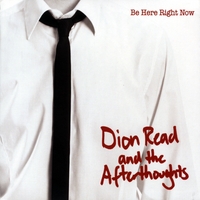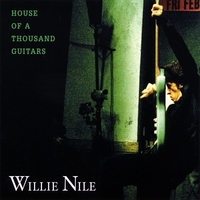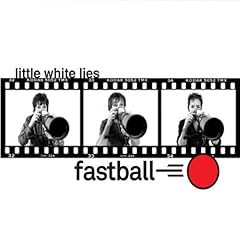Meghan McCain recently wrote an opinion column for the New York Daily News on the subject of homosexual marriage. I found it interesting because it set out so clearly the liberal way of treating these issues. According to Meghan, the ruling principle of society is equal freedom; therefore we must be equally free to choose to marry; therefore we must not discriminate against homosexuals when it comes to marriage.
This is what she has to say:
As I read the news about the recent advances of marriage equality across our country, I think it is easy for many to get distracted by the politics and rhetoric on this issue and lose sight of what is really at its heart: the equality of freedom.
No matter how politically charged the discussions about marriage equality may get, the question is really a simple one: Do the rights and privileges we offer citizens include everyone in our country, or only some of us?
I believe that allowing gays and lesbians the freedom to marry is an idea whose time has come ... For me, this is about treating all of my friends, and all of our brothers, sisters, children and grandchildren the same as I want to be treated. Equality under the law and personal freedoms are what make America the greatest country in the world, and they are core values that I hold as a Republican.
As I recently wrote after speaking at the Log Cabin Republican convention: "People may always have a difference of opinion . . . but championing a position that wants to treat people unequally isn't just un-Republican. At its fundamental core, it's un-American." I believe most Americans want our nation to succeed. Marriage equality moves us to a place where more of us can do a better job of taking care of our families.
Gays and lesbians are a vital part of our communities. They are doctors, teachers, firefighters, emergency personnel and neighbors. In this way, marriage equality is also about supporting good citizens and strengthening our communities. When a committed gay couple seeks to declare their love for one another and get married, the whole community benefits from the added stability and strength of that family. On top of that, we don't give up anything by sharing responsibilities and protections with those whom we love.
I don't intend to discuss the issue of homosexual marriage here. What I want to look at is the inadequacy of equal freedom as an organising principle of society. The argument I'll make is that equal freedom commits liberals to an overly limited and reductive view of politics.
The first question to ask is this: what do liberals mean by freedom? The answer is that they mean the freedom of an abstract individual to choose without impediment in any direction (as long as we don't directly harm the life or liberty of others). This, though, is not a true freedom. The reality is that we don't exist as abstract individuals. We exist as individuals who are invested with a concrete identity as men and women and as members of particular communities and traditions. We exist too as moral beings, concerned with issues of right and wrong.
Therefore, if we are to be free, it must be as men and women, as Americans, Australians or Japanese, and as moral beings. It is our freedom to live as our invested (or "encumbered") selves which is meaningful and signficant.
Why don't liberals recognise this? Whey don't they even register this as an issue? Well, if they did then they would have to abandon equal freedom as a single, reductive organising principle of society. They would have to recognise that there are other goods which exist prior to equal freedom, such as those relating to manhood and womanhood, to communal traditions, and to the pursuit of common, objective moral goods.
They don't want to go there.
And what about equality? What is the problem with this being an organising principle?
If freedom must be equal, then there must be no discrimination in how a society operates. The principle of non-discrimination becomes paramount, as it has in the West.
Well-intentioned liberals like Meghan McCain routinely assume that implementing this principle of non-discrimination will not have any negative consequences, that it will only strengthen society.
This is an assumption that she has to make. Once she has committed herself to a principle of equal freedom, she must then hopefully and willfully presume that there will be a positive outcome for society as a result.
If this weren't the case, if liberals like Meghan McCain really thought carefully about the likely effects of a non-discrimination principle, then they would have to think more concretely about the inner dynamics of social institutions, what is required to uphold them, the particular goods they embody, and how they fit within a larger framework.
Once you begin to examine things at this level, then you have to admit the possibility that some forms of discrimination (or differentiation) serve a reasonable purpose specific to a particular institution. The discrimination doesn't exist arbitrarily or as a consequence of ignorance, backwardness, prejudice or bigotry - the level of explanation generally preferred by liberals, who really don't want to delve into a deeper analysis, as they do not wish to think in ways that might undermine equal freedom as a simple and straightforward, albeit highly reductive, organising principle of society.
So how then should conservatives reply to the principle set out by Meghan McCain?
First, we should insist that freedom is not the only significant good. Western man traditionally took not only freedom as a good, but also virtue, love, courage, loyalty, piety and wisdom. There is no reason to reduce all goods to one single good.
Second, we should insist that freedom cannot be understood as abstracted individuals choosing in any direction without impediment (i.e. as radical personal autonomy). Freedom is only meaningful if it allows us to live our lives well as we really are, i.e. as our invested selves.
Third, equality must take into account the purpose and nature of social institutions, how they are constituted, what is necessary for their function, and the goods they embody. This will mean accepting, as necessary and legitimate, forms of social differentiation in which rates of participation in social institutions might vary, as might social roles and responsibilities.










